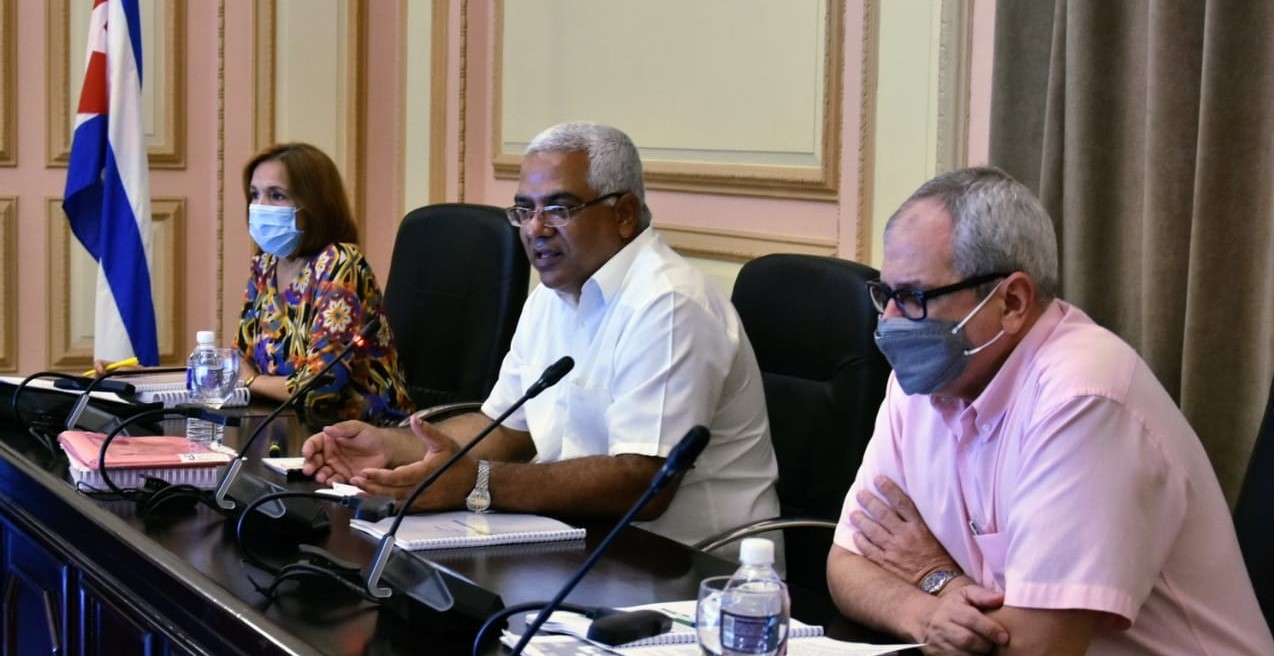The commission tapped to draft Cuba's new Family Code has been analyzing, since Monday, the population’s opinions, gathered by means of the "popular consultation" held across the country since February 1 to prepare the new version, to be delivered in June to Cuban representatives, according to the state-run portal Cubadebate.
According to the statement, Justice Minister Oscar Silvera Martínez announced that said version will be taken to the next session of the National Assembly of Popular Power (ANPP), slated for July, "for its approval in the plenary and the determination of the date of the popular referendum."
In line with the Cuban government's rhetoric, Silveira Martínez stated that the consultation was a "genuine exercise in popular participation."
"The project is a code where everyone's contribution is taken into consideration. The commission has the challenge of harmonizing their opinions with constitutional mandates and maintaining coherence with the rest of the legal system, and with the project itself," said the Minister of Justice.
However, in the current Electoral Law, enacted in August 2019, the Cuban Government makes it clear that the decision to consult the people on a bill or decision does not entail any commitment to implementing what the citizenry endorses. Article 265.1 establishes that in "the Popular Consultation the voters issue their opinion on a given matter of national or local interest, without it having any binding effect."
Moreover, such a referendum cannot be initiated by the people. The aforementioned article of the Electoral Law only recognizes the ANPP and the Municipal Assemblies of the People's Power as possible initiators of a referendum.
According to the data disclosed by the president of the National Electoral Commission, Alina Balseiro Gutiérrez, during the fifth extraordinary session of the ANPP, marriage, parental responsibility, adoption, pregnancy support, discrimination and violence in the family sphere, the rights of children and adolescents, and assisted reproduction were the issues that generated the most proposals among the population, but the public does not know what those proposals were.
There is no database available to Cubans that might allow them to view the views expressed and the proposals made during the consultation, in and outside Cuba.
During the popular consultation on the Constitution carried to referendum in 2019 there was no way to ascertain the people's ideas and proposals either.
However, the data presented by Balseiro Gutiérrez showed that, despite the regime's media offensive in favor of a Code with which it intends to transfer the responsibilities of the State to citizens and families, only 61.96% of Cubans are in favor of the new Family Code.
At the end of April, the regime's fear that Cubans will not approve the new Family Code was evidenced by Miguel Díaz-Canel during the IV Plenary Session of the Central Committee of the Communist Party of Cuba (PCC).
"We cannot lose sight of the fact that the enemy is working to boycott the referendum and the approval of a Code that is emancipatory and committed to the Revolution’s principles of social justice," said the president.
Mariela Castro, for her part, expressed confidence that the Cuban people will approve the new legislation as they did with the Constitution in 2019, although she had to admit that it will not be by a large majority.
"I assure you that I am hopeful that a people who voted for the 2019 Constitution is a people who are going to vote, though maybe not as resoundingly as they did for the Constitution, for the Family Code," she said at a press conference in early May.
Considering that during the constitutional referendum in 2019 —in which the new Constitution was approved with 86.85% of the votes, according to official figures— many activists and dissidents were arrested or prevented from voting, and that independent electoral transparency initiatives are not allowed to monitor the vote count, it is very likely that the new Family Code will pass, in accordance with the regime's interests.

“Cubans’ views” The horizon from el muro del Malecón .